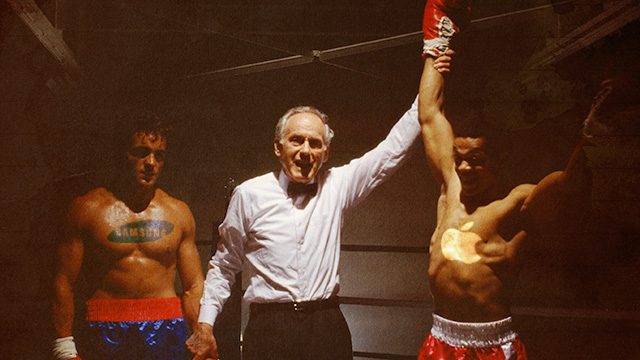
The second blockbuster Apple v. Samsung patent trial has ended, and it looks like a Pyrrhic victory for Apple.
The Cupertino company can notch a second win, but with far less damages than it requested. Apple wanted $2.2 billion, and the jury awarded it $119.6 million, or just over 5 percent of what Apple had requested.
And Samsung wasn't the only infringer in court, the jury ruled. While Samsung was found to have infringed three of the five Apple patents used in court, Apple was also found to have infringed one of two Samsung patents. Samsung was awarded $158,400.
While Apple "won" this trial, Apple simply lost on damages. The damages figure the jury came back with is a low proportion of what it was seeking.
From the trial's very beginning, Apple lawyers said that the whole purpose of Samsung presenting two patents of its own and asking for the "small" sum of $6 million was a cynical one: to convince the jurors that patents aren't worth that much.
If that was Samsung's goal—today's verdict is "mission accomplished." Considering litigation at this level is something of a war of attrition; Samsung has shown that it can basically fight Apple to a standstill. Considering Apple likely spent tens of millions on this trial alone, $120 million would certainly cover their legal bill, but not much beyond that.
The figure "probably doesn’t surpass by too much the amount Apple spent litigating this case,” said Brian Love, a professor of law at Santa Clara University who spoke to the Wall Street Journal about his view.
Both companies have plenty of cash in the bank, and the markets have accounted for even worst-case scenario outcomes (which this didn't come close to.) "Apple just won six hours of revenue," tweeted one court-watcher. And Apple won't get any closer to slowing the rapid adoption of Android worldwide.
The jury isn't quite done yet, and these figures will likely change, but not by much. After the jury turned in its verdict, US District Judge Lucy Koh found an inconsistency on the verdict form. Jurors apparently didn't award damages for one phone, the Galaxy S II, for one patent that was found to be infringed. The jurors will have to come back on Monday to resolve the issue.
That won't move the needle much. Martyn Williams of IDG News noted that the vast majority of the damages, about $99 million, was for a different patent than the one with the discrepancy.
No injunction likely
Returning a verdict late Friday afternoon, the jury found that all of Samsung's 37 million accused phones infringed the "data recognition" patent, which identifies things like phone numbers and dates for easy tapping. No Samsung phones infringed patents describing the "background sync" capability, or universal search. Some, but not all, of Samsung's phones infringed the "slide-to-unlock" patent.
Apple had asked for up to $40 per phone in royalty and "lost profit" payments.
During the trial, Apple lawyers said that Samsung had gone to "the dark side" and copied "feature after feature" from the iPhone. Samsung lawyers said that the lawsuit was part of a "holy war" against the real target—Google, which made the Android operating system used by Samsung phones.
The phones in this trial included Samsung phones and tablets such as the Galaxy III, Note II, Stratosphere, and Galaxy Nexus phones. Samsung, meanwhile, accused the iPhone 4 of infringing its patents. The trial didn't include the newest phones, like the Galaxy S5 and iPhone 5.
In the earlier trial, Apple sought an injunction that would keep the infringing phones off the market, and it will probably do so again in this case. It's also extremely unlikely to get one. US District Judge Lucy Koh has twice rejected Apple's request for such an order.
The wide-ranging patent fight between the two smartphone leaders began when Apple sued Samsung in 2011. A first trial took place in the summer of 2012 and resulted in a massive $1.05 billion verdict against Samsung, later reduced to about $930 million. That first case is now up on appeal.
If Apple was unhappy with today's relatively low damage verdict, it certainly wasn't showing that in its statement, which has been published by Re/code and CNET:
"We are grateful to the jury and the court for their service," said Apple in the statement. "Today’s ruling reinforces what courts around the world have already found: that Samsung willfully stole our ideas and copied our products. We are fighting to defend the hard work that goes into beloved products like the iPhone, which our employees devote their lives to designing and delivering for our customers."
Samsung and Google have not immediately responded to the verdict.
reader comments
195